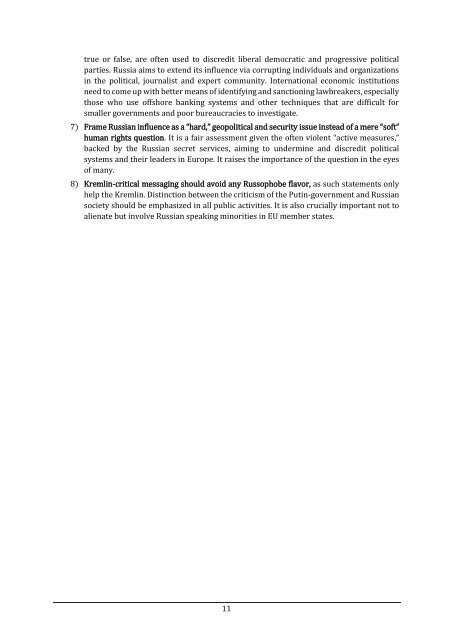to Central Europe
PC_reactionary_values_CEE_20160727
PC_reactionary_values_CEE_20160727
You also want an ePaper? Increase the reach of your titles
YUMPU automatically turns print PDFs into web optimized ePapers that Google loves.
true or false, are often used <strong>to</strong> discredit liberal democratic and progressive political<br />
parties. Russia aims <strong>to</strong> extend its influence via corrupting individuals and organizations<br />
in the political, journalist and expert community. International economic institutions<br />
need <strong>to</strong> come up with better means of identifying and sanctioning lawbreakers, especially<br />
those who use offshore banking systems and other techniques that are difficult for<br />
smaller governments and poor bureaucracies <strong>to</strong> investigate.<br />
7) Frame Russian influence as a “hard,” geopolitical and security issue instead of a mere “soft”<br />
human rights question. It is a fair assessment given the often violent “active measures,”<br />
backed by the Russian secret services, aiming <strong>to</strong> undermine and discredit political<br />
systems and their leaders in <strong>Europe</strong>. It raises the importance of the question in the eyes<br />
of many.<br />
8) Kremlin-critical messaging should avoid any Russophobe flavor, as such statements only<br />
help the Kremlin. Distinction between the criticism of the Putin-government and Russian<br />
society should be emphasized in all public activities. It is also crucially important not <strong>to</strong><br />
alienate but involve Russian speaking minorities in EU member states.<br />
11


